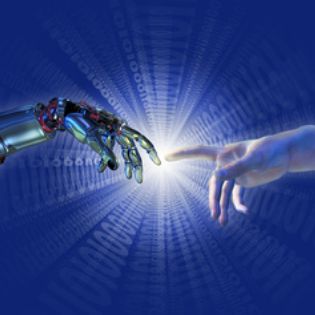What to Expect from Artificial Intelligence in the Legal Industry
October 13, 2020

October 13, 2020
Professionals in every sector are always surprised to learn how artificial intelligence will impact their industry in the near future, and we see this especially in the legal world. No, this doesn’t mean you will see a Terminator in a suit performing a cross examination on a witness. Artificial intelligence means a program that learns as it goes, becoming more effective and efficient in what it’s tasked to do as it gains more experience – much like a robotic intern!
So What Can AI Do For Me?
Artificial Intelligence will be able to do a lot of the clerical and administrative support work that usually costs a lot of man-hours and just bogs down the process. In addition to added cybersecurity and chatbox functions that people know AI is capable of, a system able to scan and analyze data at light speed will also greatly help in conducting legal research and negotiating contracts.
Preparing for a case takes a ton of research, not only of laws and statutes but of other relevant cases and background information. It’s slow and time-consuming work, but absolutely necessary to building a winning case. Artificial intelligence would be able to do this work much faster than one attorney could possibly do on their own.
AI can also greatly assist in the generation of legal contracts and documents between attorneys and clients or any two parties that are involved in a legal case. The expectation is that AI systems will be able to understand what the standard terms for a specific type of contract are during the negotiations and would additionally be able to suggest alternative provisions or clauses in these contracts if there’s ever an issue that springs up.
Potential Issues
The implementation of artificial intelligence in the legal sector is an ambitious paradigm shift and naturally brings up a lot of valid technological and ethical worries. Nothing is truly safe when it comes to technology, and hackers are getting smarter and bolder every day. Lawyers that choose to use artificial intelligence would need to understand exactly how their data is being protected from data breaches.
There are also concerns related to legal ethics. It’s not exactly clear how the rules set forth by the American Bar Associates will apply to artificial intelligence and how any assistance provided by AI systems will reflect on the attorney it worked for. For example, if there is a mistake made by an attorney because of faulty research done by an artificial intelligence program, is that the fault of the attorney or the developer of the AI?
However you personally feel about the introduction of machine learning in the legal sphere, there is no doubt that there will soon be an explosion of experimentation with this technology in this context. Whether it sinks or swims is still up in the air, but the potential for AI to make legal proceedings a much faster and smoother process is incredible.
The interest in AI could not have been possible without the success of the cloud in the legal world. If you are interested in learning how the cloud can make your law firm run like a well-oiled machine, read about the TOSS C3 cloud here!

Subscribe now and stay up to date with News, Tips, Events, Cybersecurity, Cloud and Data Compliance.